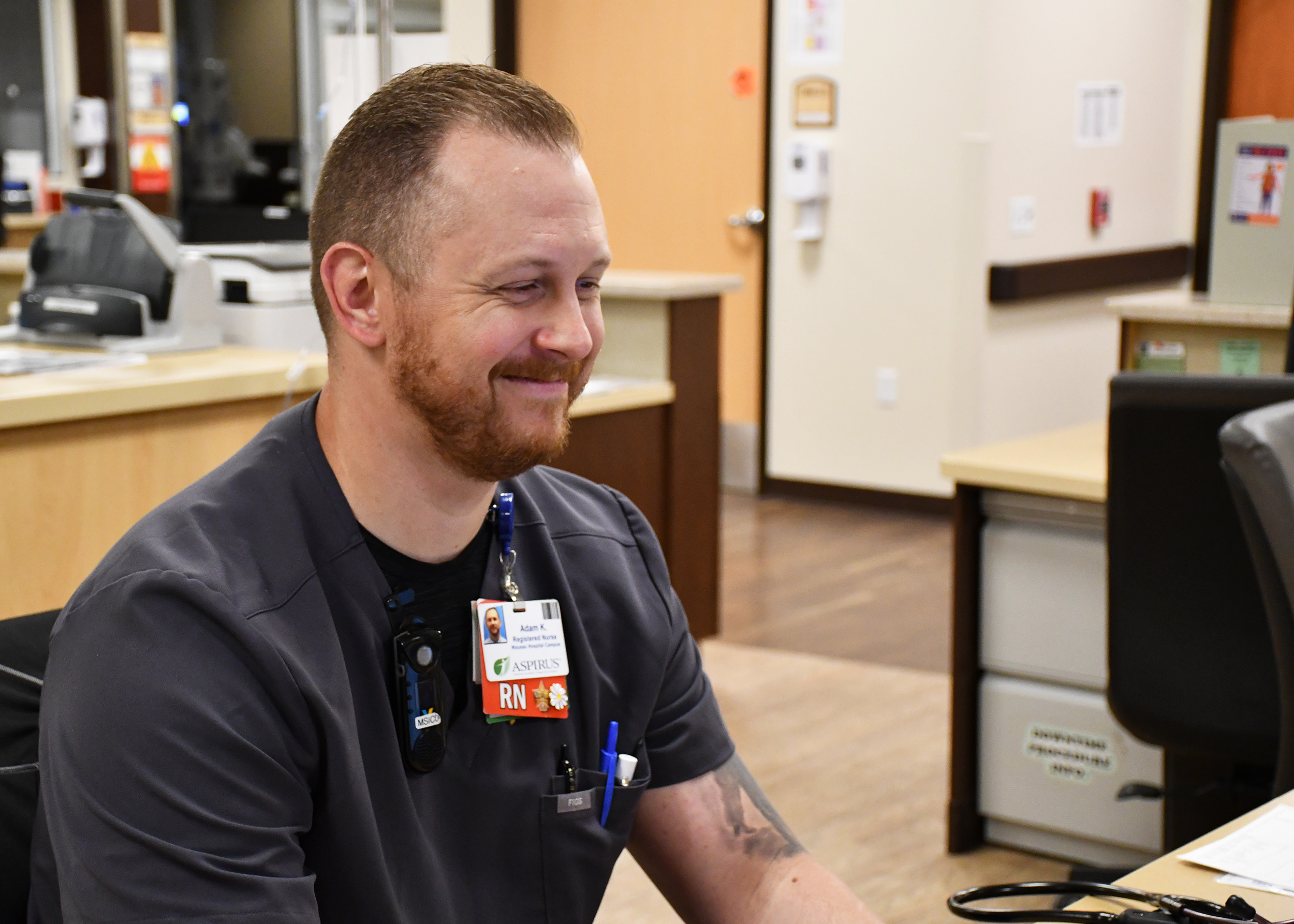Saving Lives in Need of Critical Care
May is Critical Care Awareness Month
5/31/2023

Adam Krueger, Critical Care Nurse
Intensive or critical care medicine
is a specialty that deals with seriously or critically ill patients dealing
with conditions that may be life-threatening.
This requires critical care nurses
and doctors who are specially trained medical professionals that provide care
to patients in critical condition.
Their roles extend beyond regular
healthcare settings, as they operate in intensive care units (ICUs), cardiac
care units (CCUs), emergency departments, and other critical care settings
where immediate medical attention is vital.
Adam Krueger began his nursing career as a certified
nursing assistant (CNA) in cardiac ICU before becoming a critical care RN in
MSICU. He got his passion for the medical field in the Army after he received
medical training specifically designed to aid fellow infantrymen who were
seriously wounded in combat.
Adam
states “There is no way to fully describe the feeling of influencing the
outcomes of a complete stranger’s worst day and them being moments away from
death at times, but because of my training, experience, and the amazing
teamwork of my peers in MSICU, I am privileged to make that difference almost
every day that I work.”
Common reasons for people to be admitted to the
critical care department include severe infections, respiratory distress,
cardiac conditions, post-surgical complications, traumatic injuries, and other
life-threatening emergencies.
Patients in the critical care department require
round-the-clock care and monitoring, often with one-on-one nursing support.
“The critical care department serves as a bridge
between acute care settings, such as emergency departments or operating rooms,
and general medical/surgical units. Once patients stabilize and their
conditions improve, they may be transferred to appropriate units for further
care or rehabilitation,” states Adam.
Although critical care shares similarities with other
hospital departments, it also is distinguished from other areas of the hospital
by several key factors:
- Severity of Illness: Critical care units are designed to care for patients
who are critically ill or injured and require constant monitoring and
specialized interventions. These patients often have complex medical
conditions, multiple organ system failures, or are recovering from major
surgeries.
- Intensive Monitoring: Critical care units are equipped with advanced
monitoring systems to continuously monitor vital signs, such as heart rate,
blood pressure, oxygen levels, and brain activity. The constant monitoring
enables rapid interventions and adjustments in treatment plans.
- Specialized Staffing: Critical care units are staffed with a highly trained
and specialized healthcare team, including critical care physicians
(intensivists), critical care nurses, respiratory therapists, pharmacists, and
other healthcare professionals.
- Multidisciplinary Approach: Critical care involves a multidisciplinary approach,
with healthcare professionals from various specialties collaborating to provide
comprehensive care.
- Time-Sensitive Care: Critical care often involves time-sensitive
interventions and decision-making. The window of opportunity to initiate
treatment or stabilize a patient can be narrow, and the consequences of delayed
or inadequate care can be life-threatening.
Critical care department is a multifaceted
environment. It requires team members and different healthcare professionals to
work closely together to assess patients' conditions, develop individualized
care plans, and quicky implement necessary medical interventions.
Adam states, “As a critical care
nurse, we work in a very high stress environment and have a highly important
role in the healthcare setting. A life-threatening accident can happen to
anyone at any moment. We take care of seriously ill patients and see them get
back on their feet after what could have been a fatal ending.”
Back to all Posts